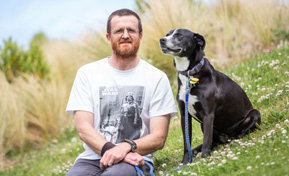 Pets are increasingly important to New Zealanders, but the relationship between the animals and their owners in New Zealand is changing, and that has implications across many different industries.
Pets are increasingly important to New Zealanders, but the relationship between the animals and their owners in New Zealand is changing, and that has implications across many different industries.
Dogs are progressively becoming part of the human family, in many cases replacing children, which is redefining “family.” And if the family goes on holiday, to the beach or out to lunch, why shouldn't the dog?
This is already happening in the USA, where an increasing number of dog owners take their animals on holiday with them, something accommodation providers overseas are exploiting. Even top hotels in Whistler, Canada, such as the Hilton for example, have rooms or entire floors where guests' dogs are welcome.
Dogs accompany their owners to work in many places, or alternatively there are more and more doggie day care options for pet babysitting services. There's also a growing market for pet clothing – not just to keep them warm in winter or protect feet when dogs and their owner go hiking, but also clothing that objectify human qualities.
These are just some of the trends University of Otago Business School Associate Professor, Tourism Neil Carr has found while researching the nature of the changing relationship with domesticated animals, humans and leisure. He has published a book on Dogs in the Leisure Experience and has edited another on Domestic Animals and Leisure.
He says as pets and leisure are redefined, society needs to debate the rights of the animal, and distinguish what is right and what is unacceptable.
For instance, dogs have legal rights to basic necessities such as food and shelter, but Dr Carr asks what else is essential. “Animals have rights as sentinel beings, not just as objects of human leisure. Therefore, should dogs have the freedom of expression to have their own needs meet, rather than simply being pets inhabiting the experiences of humans? Is a handbag pooch, such as that of socialite Paris Hilton in fact a form of animal abuse?
At the same time we also need to respect that different cultures view dogs differently – including eating them in some countries– and that they have other roles, including racing, hunting and working on-farm and as guide dogs.
“We're not saying what is right or wrong, we're pointing out the changes happening in society, and encouraging New Zealanders to discuss this.”
It's also worth noting there are commercial opportunities to stem from this evolution, particularly in filling a potentially lucrative gap in the New Zealand tourism market for pet-friendly accommodation.







